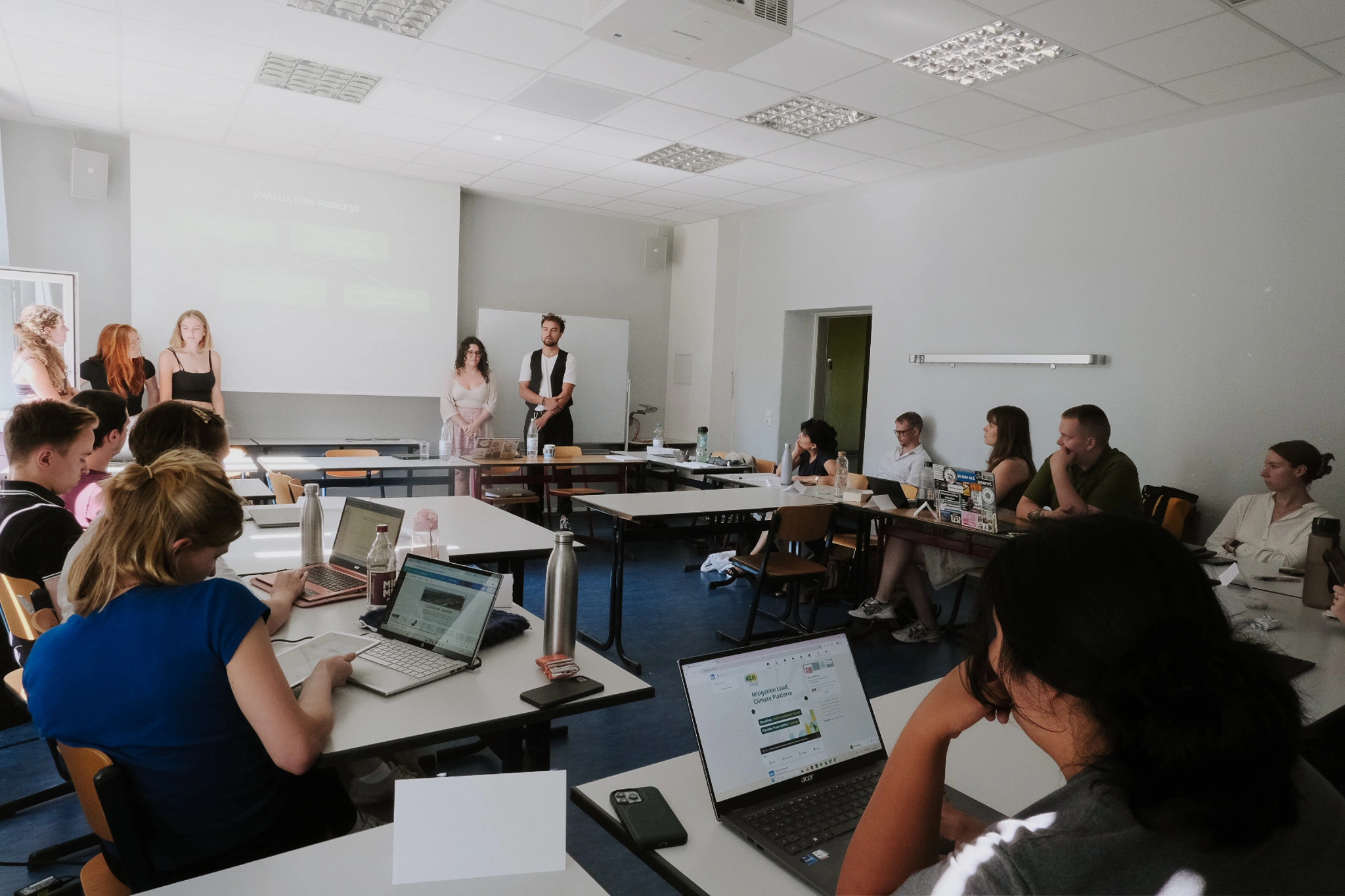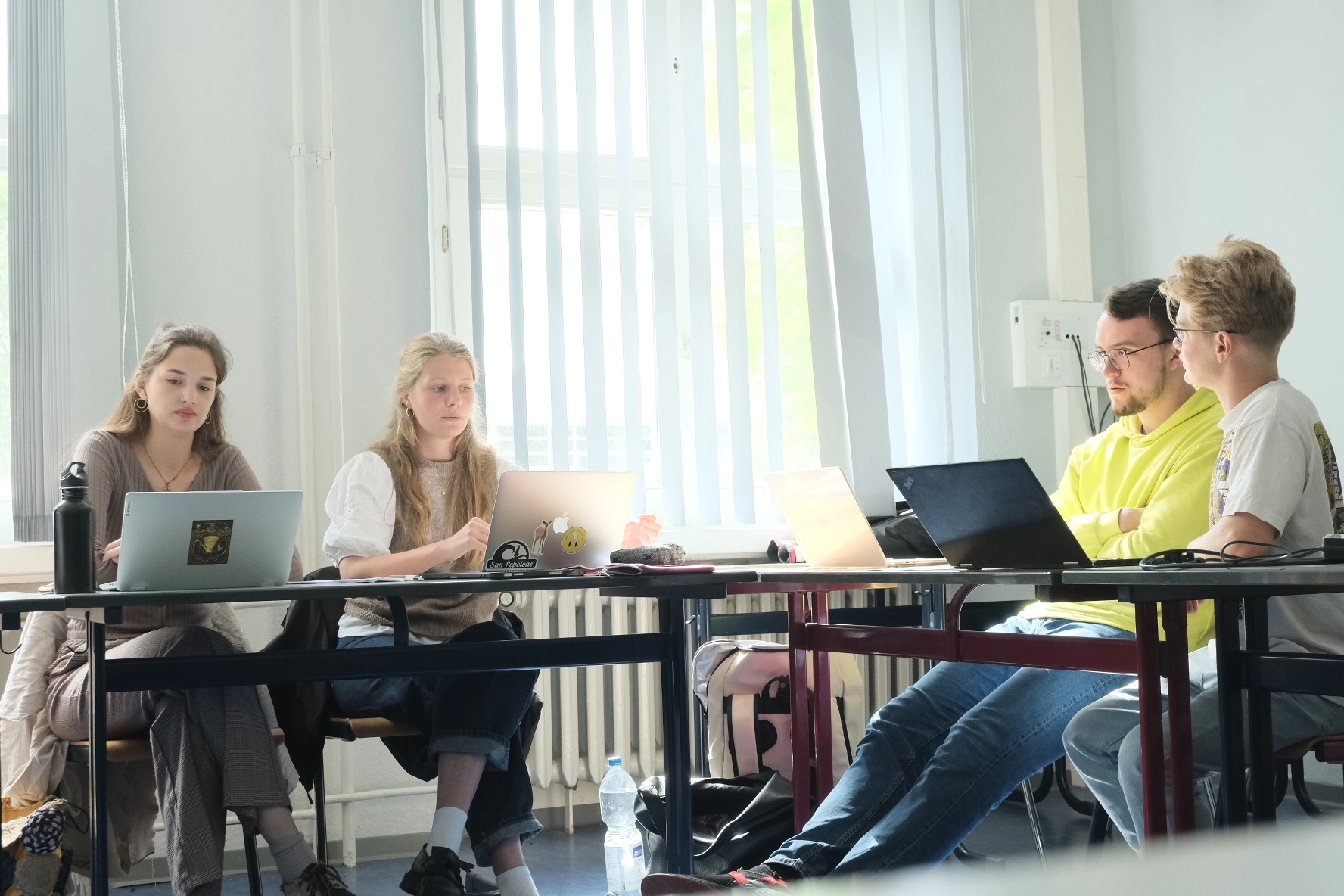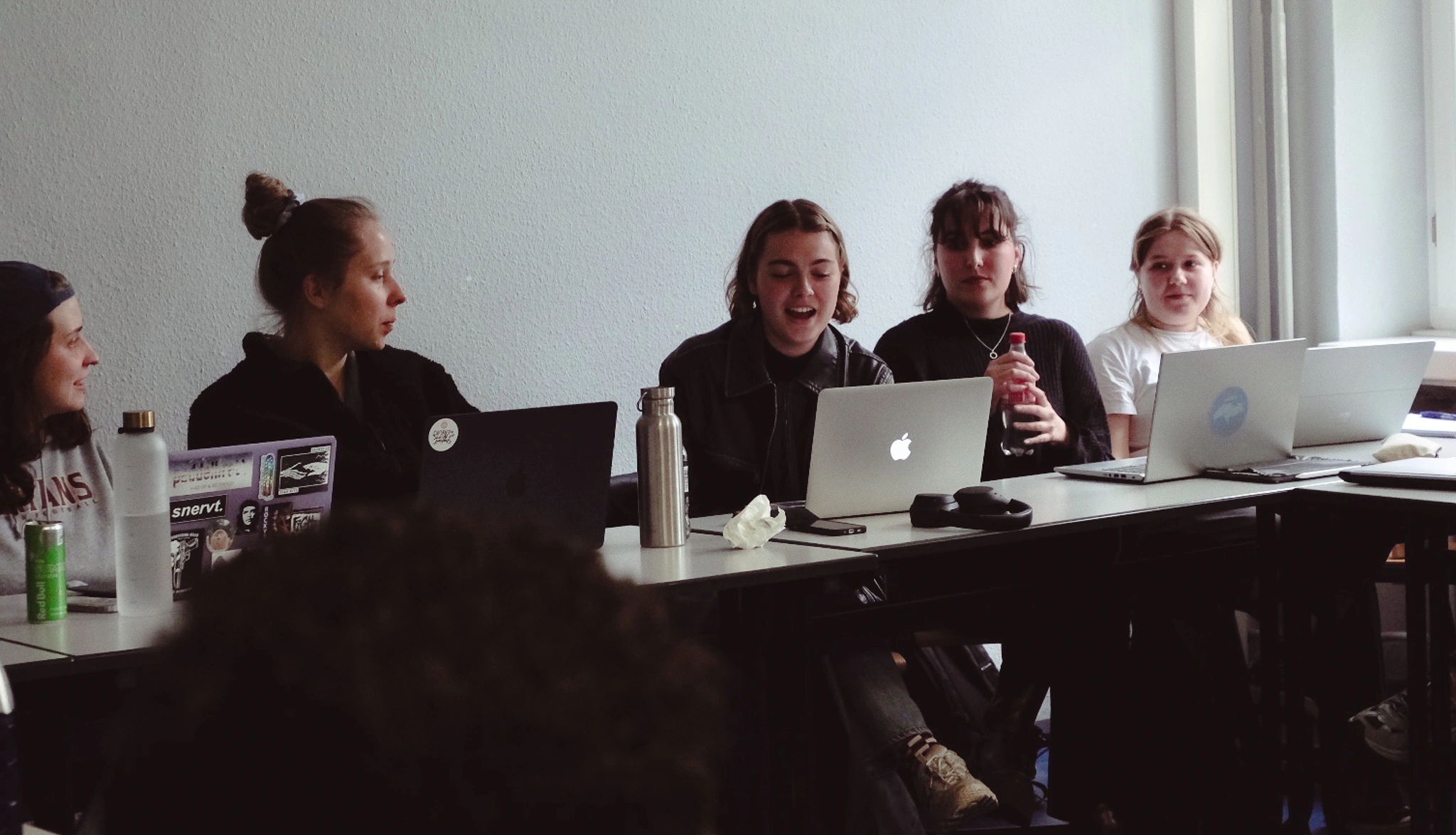BA Global Justice Clinic: Human Rights and Modern Slavery
In the Clinic course, students engage in the analysis and resolution of actual cases pertaining to human rights. The seminar is structured around a series of interrelated thematic teaching units. In these units, the theoretical and practical issues related to the international protection of human rights and the relations between the Global South and North are discussed in depth.
The objective is to prepare students for the final deliverable, which is being developed in collaboration with the Slave Labor and Human Trafficking Clinic of the Faculty of Law of the Federal University of Minas Gerais (Clínica de Trabalho Escravo e Tráfico de Pessoas da Faculdade de Direito da Universidade Federal de Minas Gerais), Brazil. The collaboration is centered on the issue of slave labor on Brazilian coffee plantations. The coffee produced in this region is exported to Germany and other countries within the European Union. In this regard, the enactment of the German Supply Chain Act (LkSG) and the adoption of the EU Directive on Corporate Sustainability Impact Assessments have brought the potential exploitation of laborers in the production of coffee imported from Brazil to the fore for Germany and the entire European Union.
In this context, students will undertake an interdisciplinary analysis of the existence of slave labor in the production chains of coffee consumed in Germany and the consequences of the German Supply Chain Act.
The course will be conducted in German, with guest lectures delivered in English. Moreover, a selection of the course bibliography will be made available in English.
The course can be accessed via Moodle under the title "[WS 2024] Global Justice Clinic (BA): Internationaler Menschenrechtsschutz und Modern Slavery " is open for enrollment using the provided enrollment key.
* The course is part of the teaching project, "Clinical Education in Global Justice," which is funded by the Foundation for Innovation in Higher Education. Further information can be found on the chair's website under "Projects" and "Global Justice Clinic."
MA/MPP Global Justice Clinic
Today, human rights practitioners are faced with a contradictory situation. On the one hand, the expansion of human rights claims into more and more areas of social life from supply chain due diligence to the climate crisis continues. On the other hand, the human rights community suffers from a growing sense of crisis. The existing framework of human rights seems incapable to address the magnitude of today’s global challenges and shrinking spaces for transnational civil society cooperation and various contestations challenge the very concept of human rights and the material conditions for human rights activism.
In this course, students work on real case studies from human rights practice supervised by practitioners. Over the course of the semester, they are introduced to the principles of human rights law and advocacy. As they cooperate with partners, students are furthermore encouraged to observe and reflect on human rights practice from ethnographic, critical theoretical, and organizational perspectives, thereby building a comprehensive practical and structural understanding of human rights today.
The course is interdisciplinary and addressed to students with or without prior legal knowledge. The course will be held in English language. Grading will be based on coursework done in project groups in cooperation with partner organisations from practice.
Summer Term 2024: BA Global Justice Clinic Practitioner Seminar on International Law
The summer term 2024 featured the first ever clinic course on the BA-level. The course accompanied the lecture in international law as a sub-module "Practical Seminar in International Law". Aimed at selected students it offered an opportunity to acquire skills in the application of and critical reflection on international law through experience-based and research-based learning on real cases.
In the first half of the semester, weekly sessions introduced students to the fundamentals of international law and justice theory.
In the second half of the semester, three parallel block courses took place where students worked on real cases and problems. Each course was led by practitioners from international law, human rights or development cooperation working at Germany’s Permanent Mission to the UN in Geneva, the Gesellschaft für Internationale Zusammenarbeit (GIZ), and the International Secretariat of the Food First International Action Network (FIAN).
The students covered cases based on:
(1) negotiations for a WHO pandemic treaty
(2) the bilateral support of India’s green transition and coal phase out
(3) human rights lawyering at the UN on behalf of Ecuadorian farmers and Indian fishers
Summer Term 2024 MA: State and Law in the Multilevel System - Global Justice Clinic in Business and Human Rights
At the center of this clinic course were the human rights responsibilities of business enterprises which are becoming increasingly important in German and international law. Within the framework of clinical training on real cases, students worked on case studies from practice in the field of business and human rights. A special focus was placed on human rights governance of transnational supply chains, as required by the German Supply Chain Act of 2021 and comparable foreign and European regulations. Guest lecturers from human rights practice, business and various experts provided insights into their practical work and supervise the group work on the case studies.
As part of the course, student teams worked with partners, including the European Center for Constitutional and Human Rights, on the following practical projects:
- Legal background research on the concept of Corporate Climate Due Diligence
- Strategic communication accompanying a litigation case against a German company in the context of a civil lawsuit filed in Germany includes allegations of negligence in mining operations and certification, leading to a fatal accident and thousands of victims in Brazil
- Explorative Research in the area of Climate and Carbon Accounting, investigating the carbon footprint of German "carbon majors" and other companies with high emissions in preparation for legal analysis, and potential litigation, concerning their responsibility for extreme weather events and ensuing loss and damage in the Global South
- Legal Research on Responsible Contracting regarding the unilateral imposition of human rights obligations by large multinationals



